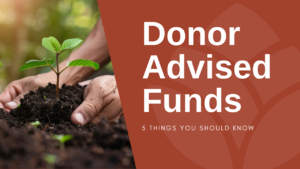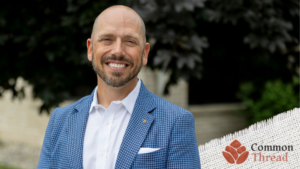
The One Big Beautiful Bill Act (OBBBA) was signed into law on July 4, 2025. At nearly 900 pages long, this legislation affects many areas of American life, including how individuals and families participate in charitable giving.
At the Community Foundation of Greater Flint, we’re here to help donors, fundholders, nonprofits, and professional advisors understand what this means and how to respond. Below are three key takeaways and how they may affect our community’s generosity in the years ahead.
1. Standard Deduction Goes Higher
What’s changed:
The OBBBA makes permanent the increased standard deduction first introduced in 2017:
- $15,750 for single filers
- $31,500 for married couples filing jointly
It also reduces the tax benefit for charitable giving among top earners and introduces a new threshold: charitable deductions now only count if they exceed 0.5% of a filer’s adjusted gross income.
What this means:
Fewer people will itemize their deductions, which may discourage some from giving purely for tax reasons. But the core truth remains that people give because they care. Philanthropy is driven by values, not just tax codes.
What you can do:
If you’re a donor, your support continues to make a real impact—regardless of tax incentives. If you’re a community partner or a financial advisor working with donors, continue to explore the underlying reasons behind giving. Generosity isn’t just a financial decision—it’s a reflection of what people value and hope to pass on.
2. A New Deduction for Non-Itemizers Creates Opportunity
What’s changed:
Beginning in 2026, individuals who don’t itemize can still claim a charitable deduction—up to $1,000 for individuals and $2,000 for couples filing jointly. While gifts to donor-advised funds don’t qualify, this is the first permanent federal deduction for non-itemizers in recent history.
What this means:
This change could motivate more households—especially those early in their careers—to begin giving more consistently. It’s a moment of opportunity to engage new donors and reinforce the joy and purpose of giving.
What you can do:
If you’re not currently itemizing deductions, this new provision could make giving more accessible. Let us help you make your giving go further. If you work with new donors, help them see how this small tax change can be the start of a lifelong habit of generosity.
3. High Estate Tax Exemptions Are Here to Stay—for Now
What’s changed:
The OBBBA makes permanent the expanded estate tax exemption that was set to expire in 2025. In 2026, the exemption will rise to:
- $15 million for individuals
- $30 million for married couples
What this means:
Estate tax planning will remain relevant primarily for ultra-high-net-worth households. However, this added stability gives families and advisors more time to plan thoughtfully—and to consider how charitable giving fits into legacy plans.
What you can do:
If you’re considering how to leave a lasting legacy, this is a powerful moment to explore planned giving. Reach out to us to explore strategies like endowed funds or gifts through wills and trusts. For nonprofits, now is the time to continue strengthening your planned giving outreach and infrastructure.
Let’s Keep Giving Forward
At the Community Foundation of Greater Flint, we believe in the power of generosity to create lasting impact. Whether you’re a donor, an advisor, or a community partner, we’re here to help you make informed decisions and inspire change, one gift at a time.
Have questions about what the One Big Beautiful Bill Act means for you or your clients? Contact us at development@cfgf.org or call 810-767-8270 to speak with a member of our Development and Donor Services team.




